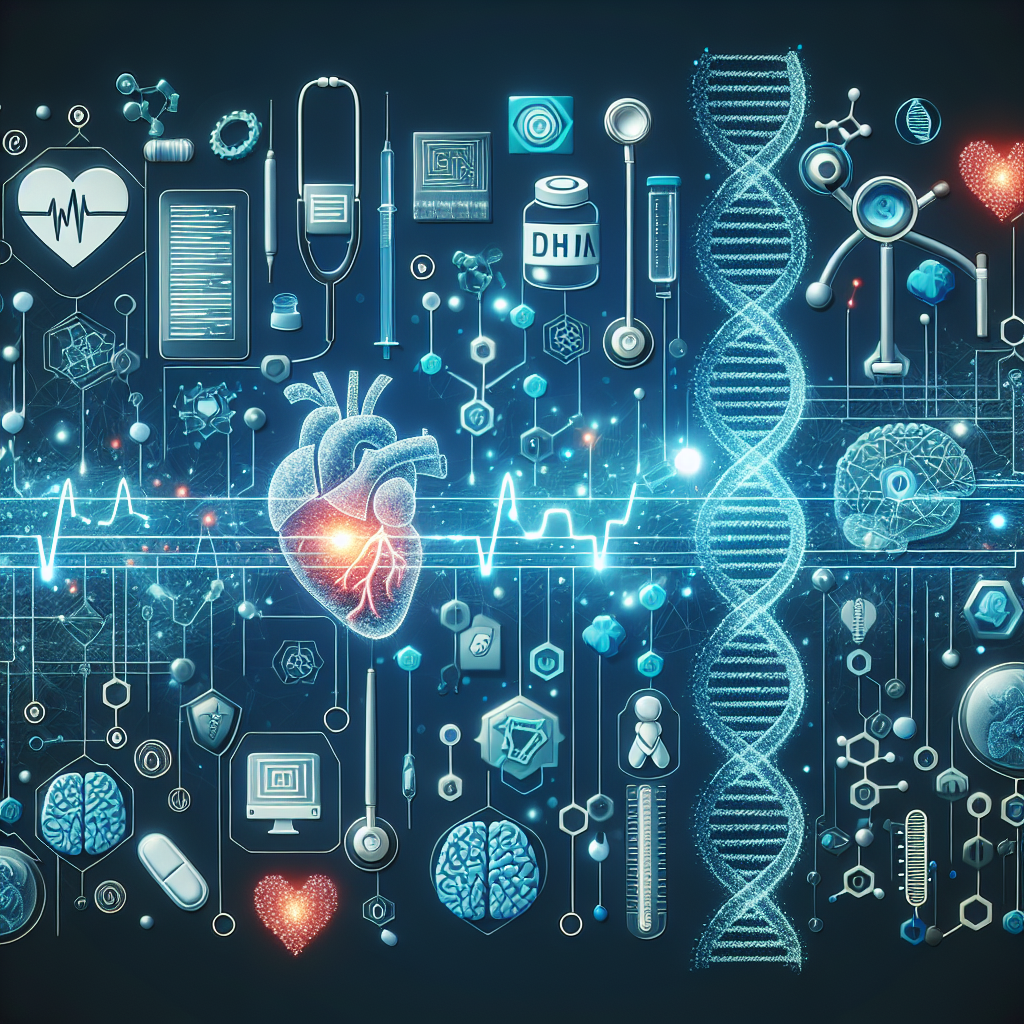Artificial Intelligence (AI) has revolutionized many industries, and healthcare is no exception. One area where AI is making a significant impact is in personalized medicine. Personalized medicine aims to tailor medical treatment to the individual characteristics of each patient, taking into account their unique genetic makeup, lifestyle, and environmental factors. AI integration in personalized medicine has the potential to improve patient outcomes, reduce healthcare costs, and advance medical research. In this article, we will explore the benefits of AI integration in personalized medicine and address some frequently asked questions about this emerging field.
Benefits of AI Integration in Personalized Medicine:
1. Improved Diagnostics:
AI algorithms can analyze large amounts of data, including genetic information, medical records, and imaging results, to accurately diagnose diseases and predict their progression. By combining multiple sources of data, AI can identify patterns and trends that human healthcare providers may overlook, leading to earlier and more accurate diagnoses.
2. Personalized Treatment Plans:
AI can analyze a patient’s genetic information, medical history, and lifestyle factors to create personalized treatment plans that are tailored to their unique needs. This can lead to more effective treatments with fewer side effects, as well as better patient outcomes.
3. Drug Discovery and Development:
AI can analyze vast amounts of data to identify potential drug targets, predict drug interactions, and accelerate the drug discovery process. By using AI to streamline drug development, researchers can bring new treatments to market faster and more efficiently.
4. Predictive Analytics:
AI can analyze patient data to predict disease progression, identify high-risk patients, and recommend preventive interventions. This can help healthcare providers intervene early to prevent or manage chronic conditions, leading to better health outcomes and reduced healthcare costs.
5. Precision Medicine:
AI can help healthcare providers deliver precision medicine by identifying the most effective treatments for individual patients based on their unique characteristics. By tailoring treatments to each patient’s genetic profile, lifestyle, and environmental factors, healthcare providers can maximize treatment efficacy and minimize side effects.
6. Remote Monitoring:
AI-powered devices and apps can monitor patients’ health in real-time, providing continuous feedback to healthcare providers and enabling early intervention when needed. This can help patients manage chronic conditions more effectively, reduce hospitalizations, and improve their overall quality of life.
7. Cost Savings:
AI integration in personalized medicine can lead to cost savings for healthcare providers by reducing the need for unnecessary tests and treatments, improving efficiency in diagnosis and treatment, and preventing costly complications. By optimizing patient care and resources, AI can help healthcare systems deliver higher-quality care at a lower cost.
Frequently Asked Questions:
1. How does AI analyze genetic information in personalized medicine?
AI uses machine learning algorithms to analyze genetic information, medical records, and other data sources to identify patterns and trends that can inform personalized treatment plans. By comparing a patient’s genetic profile to a database of known genetic markers, AI can predict how a patient may respond to certain treatments and identify potential risks for developing certain diseases.
2. Is AI integration in personalized medicine safe and secure?
AI integration in personalized medicine raises concerns about patient privacy and data security. Healthcare providers must ensure that patient data is encrypted, anonymized, and stored securely to protect patient confidentiality. Additionally, AI algorithms must be validated and tested rigorously to ensure their accuracy and reliability in clinical settings.
3. How can patients benefit from AI integration in personalized medicine?
Patients can benefit from AI integration in personalized medicine by receiving more accurate diagnoses, personalized treatment plans, and preventive interventions tailored to their individual needs. AI can help patients manage chronic conditions more effectively, reduce the risk of complications, and improve their overall quality of life.
4. What are the challenges of AI integration in personalized medicine?
Some challenges of AI integration in personalized medicine include the need for large and diverse datasets, regulatory hurdles, and concerns about the ethical use of AI in healthcare. Healthcare providers must address these challenges to ensure that AI technologies are implemented safely and effectively in clinical practice.
In conclusion, AI integration in personalized medicine has the potential to revolutionize healthcare by providing more accurate diagnoses, personalized treatment plans, and preventive interventions tailored to individual patient needs. By leveraging AI algorithms to analyze large amounts of data, healthcare providers can deliver precision medicine, improve patient outcomes, and reduce healthcare costs. While there are challenges to overcome, the benefits of AI integration in personalized medicine are clear, and the potential for innovation in this field is vast.

